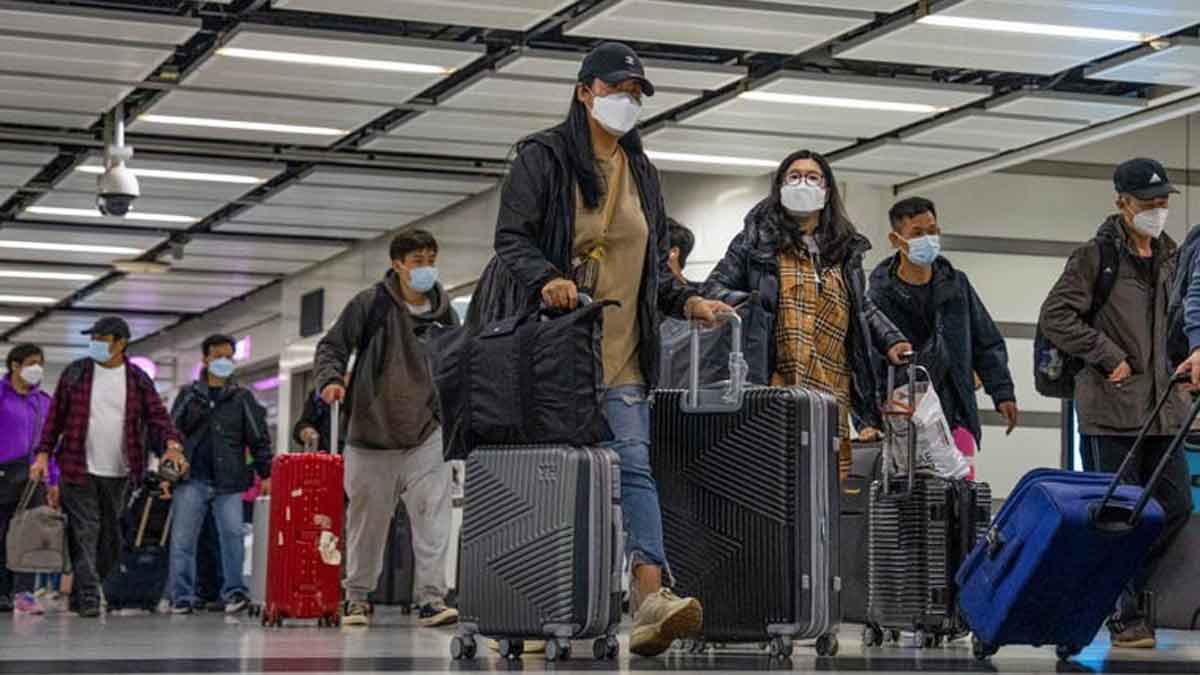Covid-19 surge in Asia: No cause for alarm, say experts

A fresh wave of COVID-19 is sweeping across Asia, with countries like Singapore, China, Thailand and Hong Kong reporting a spike in infections. Over 250 active Covid-19 cases have been reported in India so far. However, health experts assured the public there is no need to panic but to remain cautious.
In an interview with THE WEEK, experts—Dr Simon Grant, physician and trustee, Ruby Hall Clinic, Dr Harish Chafle, Senior Consultant Intensivist, Chest Physician, Bronchoscopist and sleep disorders specialist, Gleneagles Hospital, Parel Mumbai and Dr Sushila Kataria, Senior Director, Internal Medicine, Medanta, Gurugram-- share their take on the current scenario.
Q: Is it a new Covid variant that is causing the recent surge or has it been around for a while?
A: Dr Simon Grant: The recent increase in cases in parts of Asia, including Singapore and Hong Kong, is primarily attributed to the JN.1 variant and its sub-lineages, such as LF.7 and NB.1.8. The JN.1 variant is a sub-lineage of the Omicron BA.2.86 strain and was first detected in August 2023 in the United States. While the original BA.2.86 did not spread widely, JN.1 has shown increased transmissibility.
Dr Harish Chafle: The fresh wave can become a matter of concern. In India, cases have been reported in Kerala, Maharashtra, and Tamil Nadu. Even though there is an uptick in the cases of COVID-19, everyone must stay calm and composed. Don’t panic and seek timely intervention. The JN.1 variant can even impact vaccinated people.
Dr Sushila Kataria: Based on research from the countries reporting the surge, it is likely a variant of Omicron, specifically the JN1 variant.
Q: Since hospitalisation is low are we to believe that this is a less potent variant?
A: Dr Simon Grant: In India, the current number of active COVID-19 cases is relatively low, and the majority of these cases are mild, with no significant increase in hospitalisations reported. However, in places like Singapore and Hong Kong, there has been an increase in hospitalisations and, in Hong Kong, a rise in weekly deaths. While the current data suggests that the circulating variants do not pose a higher global public health risk compared to other circulating variants, the situation is being closely monitored. The severity of illness can still vary based on an individual's immunity and overall health.
Dr Harish Chafle: No complications have been reported so far. Symptoms, if at all, would include cough, fever, loss of smell and taste, and headaches.
Dr Sushila Kataria: Given India's large population and the relatively low numbers currently, we need to be vigilant.
Q: What population group is at greater risk?
A: Dr Simon Grant: While anyone can get infected, high-risk groups, such as the elderly and those with underlying health conditions or weakened immune systems, are generally more vulnerable to severe illness. In regions experiencing a surge, like Singapore, authorities are specifically advising these groups to receive booster shots.
Dr Harish Chafle: Right from children to adults to senior citizens are at risk. Those who are pregnant and others with weakened immunity should be extra careful.
Dr Sushila Kataria: The disease would be severe among those with comorbidities and the elderly.
Q: Do we all need booster doses?
A: Dr Simon Grant: Health experts in affected areas are advising high-risk individuals to take booster vaccines as a precaution. The effectiveness of vaccines can wane over time, and booster doses can help to restore protection. The WHO's Technical Advisory Group on COVID-19 Vaccine Composition (TAG-CO-VAC) continues to monitor the evolution of the virus and will provide recommendations on vaccine antigen composition.
Dr Sushila Kataria: There are no particular guidelines on booster vaccination from India so far. We will have to look forward to ICMR guidelines and others for booster doses for any vulnerable group.
Q: Should India be worried?
A: Dr Simon Grant: India has so far reported a low number of active COVID-19 cases, and the situation is currently described as under control by health authorities. However, the rise in cases across Asia, coupled with the possibility of waning immunity, suggests a need for continued vigilance.
India has robust disease surveillance systems in place, including genome sequencing efforts, to track any new developments. Experts advise that there is no cause for alarm unless there is a significant increase in hospitalisations or fatalities.
Dr Harish Chafle: Every Indian should adhere to the COVID protocol of masking, social distancing, and hand sanitizing. There is no need to worry if you follow the guidelines.
Dr Sushila Kataria: COVID has been in circulation for a while, and most waves come and go without causing too much impact, increased mortality, or hospitalisation. However, we have to be prepared for the unexpected. We have to be cautious, and vigilant, increase our surveillance and the genetic sequencing of this virus, and be watchful if any new virus comes or any new trends of hospitalisation with respiratory tract infections or mortality start to increase.
Recommended precautions by experts
· Wear masks in crowded or poorly ventilated areas
· Regular handwashing with soap and water or using an alcohol-based hand sanitizer
· Maintaining personal and hand hygiene
· Avoiding being around sick people
· Staying home if unwell
· Getting tested if experiencing flu-like symptoms
· For high-risk individuals, stay updated with vaccinations, including booster doses as recommended.
. Eat a balanced diet to boost immunity.
. Limit visitors at home if you have babies, children or older people as their immunity is compromised
. Disinfect the frequently touched surfaces such as furniture faucets, door knobs and handles.
Health